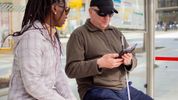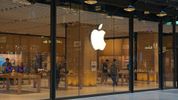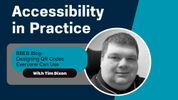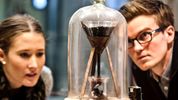Marburg, a leafy, medieval university town in Germany is the home of a specialist school for the blind., Marburg has turned into a hotbed of inclusive innovation from folding canes to talking bus stops. The higher proportion of blind people means shops and transport are more aware of how to interact with blind people.
Dago Schelin, a sighted filmmaker and media studies researcher at the Philipps University, comes to a similar conclusion in a case study of Marburg as a model for inclusive innovation. He and his co-authors describe it as a "smart city for the blind" and argue that "Marburg appears to specialise in an alternative mode of smartness". Instead of revolving around digital technologies, this type of smartness is more human-oriented. It centres on supportive interactions between differently abled people, and on accessible institutions. Schelin and his co-authors suggest that Marburg might become "a reference for prospective smart cities", with accessibility perhaps becoming "one of the criteria for a city's smartness status."
In addition to the school's impact on the city, in 2017 it offered its first Advanced Chemistry course, by 2019 the course was so popular, the school ran two classes. Many ways of teaching chemistry are visual, the school identified and implemented teaching methods that leverage multiple senses.
"No human being can see molecules, no human being can see atoms, and yet, chemistry education is so visual. Why? There shouldn't be any disadvantage for blind people, given that sighted people can't see all this, either," he says.
https://www.bbc.com/future/article/20210916-the-school-that-change-a-city-into-a-place-for-the-blind
















